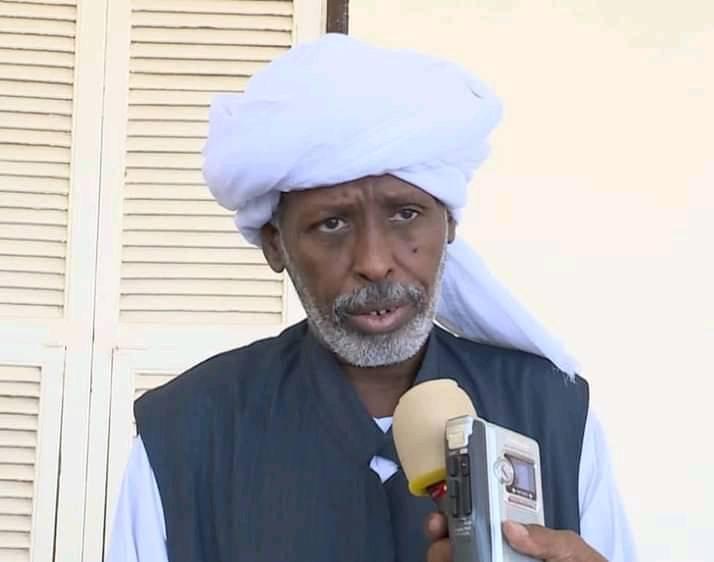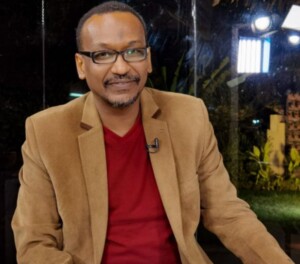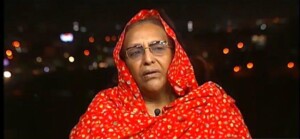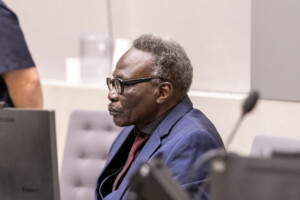Eastern Sudan: New deputy chair appointment deepens rift between Beja nazirs
Forces of Freedom and Change-Democratic Block (FFC-DB) has hailed the appointment of Sayed Tirik, head of the mainstream High Council of Beja Nazirs and Independent Chieftains, as its deputy chair as “an excellent step to expanding political participation”, however the High Beja Nazirs Council-Adarob wing has voiced its disapproval at the appointment.
 Forces of Freedom and Change-Democratic Block (FFC-DB) has hailed the appointment of Sayed Tirik, head of the mainstream High Council of Beja Nazirs and Independent Chieftains, as its deputy chair (File photo: Social Media)
Forces of Freedom and Change-Democratic Block (FFC-DB) has hailed the appointment of Sayed Tirik, head of the mainstream High Council of Beja Nazirs and Independent Chieftains, as its deputy chair (File photo: Social Media)
Forces of Freedom and Change-Democratic Bloc (FFC-DB) has hailed the appointment of Sayed Tirik, head of the mainstream High Council of Beja Nazirs and Independent Chieftains, as its deputy chair as “an excellent step to expanding political participation”, however the High Beja Nazirs Council-Adarob wing has voiced its disapproval at the appointment.
The FFC-DB itself welcomed Tirik as its vice chair and described his installation as “an excellent step to expanding political participation”.
Spokesperson Juma El Wakeel told Radio Dabanga that the group has gained importance because the Beja nazir is very popular and widely accepted as political leader in eastern Sudan.
However, Abdallah Obshar, spokesperson for the Beja Nazirs Council-Adarob wing told Radio Dabanga that they are not a party to Tirik’s joining the Democratic Block. “We were even not notified,” he said. “This step has seriously disrupted the reconciliations that take place within the council”.
He further expressed his fear that the issue of eastern Sudan will be neglected again in the future. “By this development, it has lost its particularity.”
The FFC-DB was formed in early November by leaders of rebel movements that signed the Juba Peace Agreement with the Sudanese government in October 2020.
“The Democratic Bloc seeks to expand its alliances with all marginalised regions in the country,” El Wakeel continued. “Especially since the east suffers from marginalisation since ages. We must find themselves in all political layers of the state without exception.”
The spokesperson denied that Tirik refuses to accept the Eastern Sudan Protocol of the Juba Peace Agreement. “He expressed his reservations about the agreement because the Beja Nazirs Council was not included in the peace talks at the time.”
Both the mainstream High Council of Beja Nazirs and Independent Chieftains and its Adarob-Wing split-off faction remain committed to the cancellation of the Eastern Sudan Protocol of the 2020 Juba Peace Agreement.
The Adarob-Wing seems to cling to protest actions to reach their goal and announced in a statement on Friday, that they decided on an escalation of their protests, starting from December 10.
The faction said it refuses to recognise “any document or declaration that does not speak clearly about the cancellation of the Protocol and proposes a new negotiating platform”.
It called on “all young people who reject the theft of their struggle and the cheap selling of the East” to take immediate action.
The mainstream High Council of Beja Nazirs, chaired by Tirik, reacted in a statement on Friday that it joined the FFC-DB because “it is the most appropriate alliance, as it includes the mainstream Democratic Unionist Party [based in eastern Sudan] and the armed rebel movements, who also believe that the Eastern Sudan Track Protocol should be cancelled.
The statement said that the FFC-DB has adopted the outcomes of the Sinkat conferences that both decided on the establishment of a special negotiating platform for the eastern region of Sudan “where no party or group will be excluded”.











 and then
and then